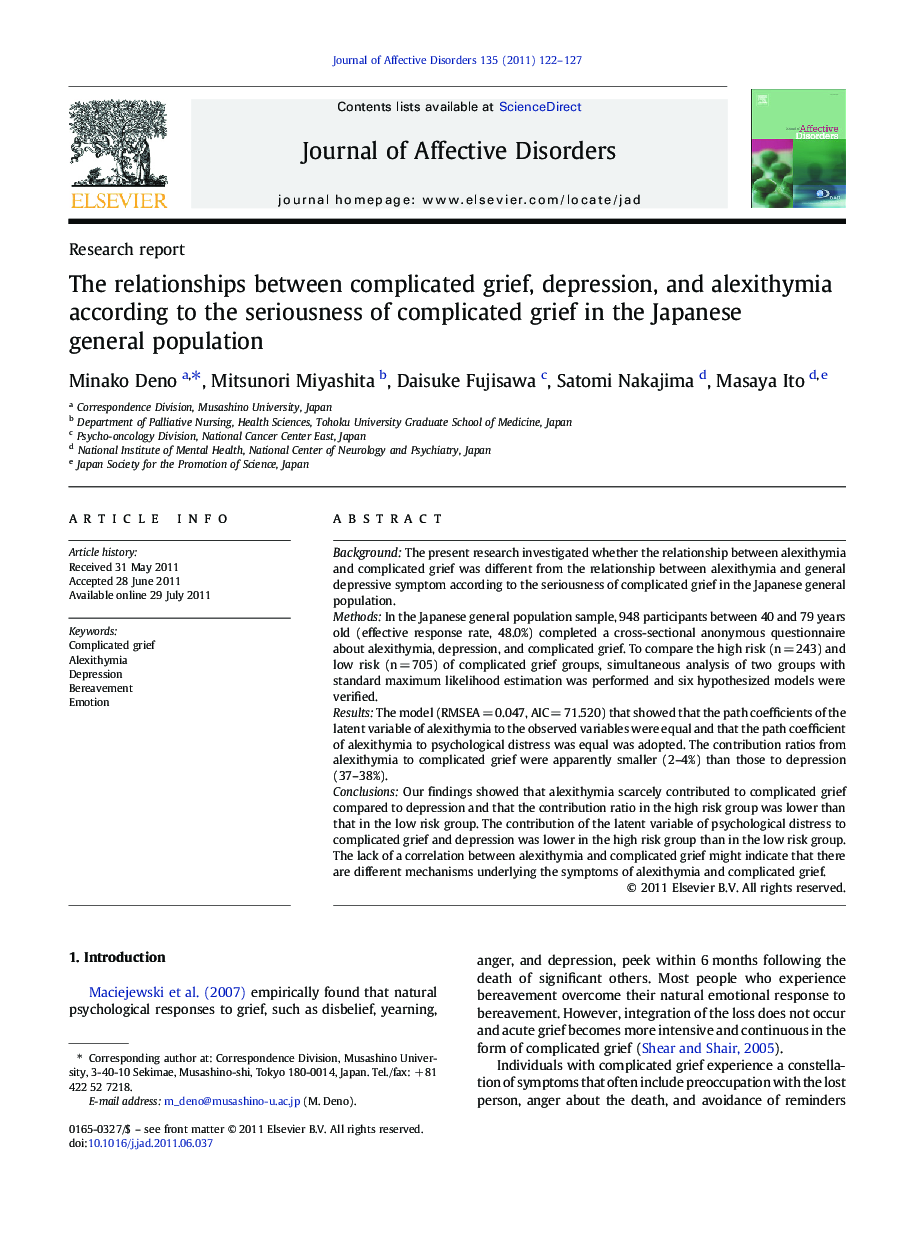| Article ID | Journal | Published Year | Pages | File Type |
|---|---|---|---|---|
| 6235580 | Journal of Affective Disorders | 2011 | 6 Pages |
BackgroundThe present research investigated whether the relationship between alexithymia and complicated grief was different from the relationship between alexithymia and general depressive symptom according to the seriousness of complicated grief in the Japanese general population.MethodsIn the Japanese general population sample, 948 participants between 40 and 79 years old (effective response rate, 48.0%) completed a cross-sectional anonymous questionnaire about alexithymia, depression, and complicated grief. To compare the high risk (n = 243) and low risk (n = 705) of complicated grief groups, simultaneous analysis of two groups with standard maximum likelihood estimation was performed and six hypothesized models were verified.ResultsThe model (RMSEA = 0.047, AIC = 71.520) that showed that the path coefficients of the latent variable of alexithymia to the observed variables were equal and that the path coefficient of alexithymia to psychological distress was equal was adopted. The contribution ratios from alexithymia to complicated grief were apparently smaller (2-4%) than those to depression (37-38%).ConclusionsOur findings showed that alexithymia scarcely contributed to complicated grief compared to depression and that the contribution ratio in the high risk group was lower than that in the low risk group. The contribution of the latent variable of psychological distress to complicated grief and depression was lower in the high risk group than in the low risk group. The lack of a correlation between alexithymia and complicated grief might indicate that there are different mechanisms underlying the symptoms of alexithymia and complicated grief.
